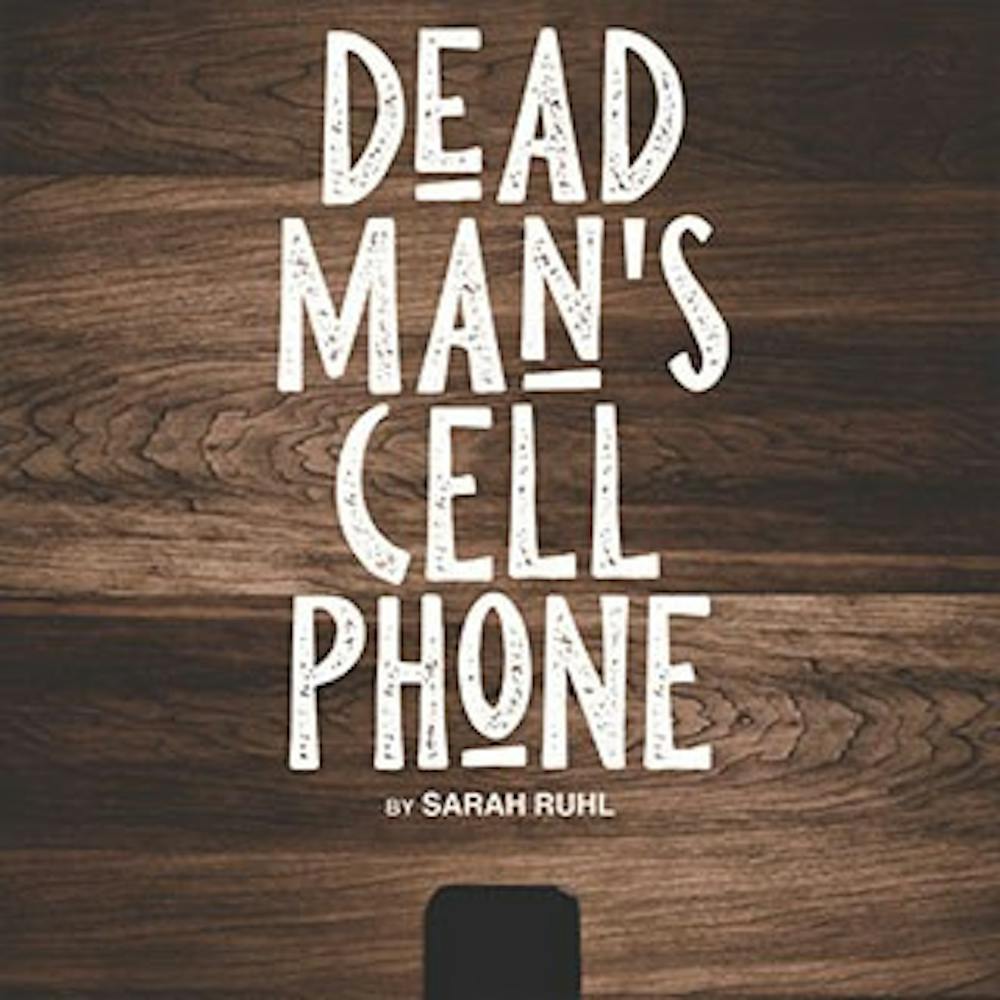"Dead Man's Cell Phone” opens at 7:30 p.m. Oct. 18 in Strother Studio Theatre. Additional performances will be 7:30 p.m. Oct. 19, 22, 23, 24, 25, 26 and 2:30 p.m. Oct. 20. The cost to attend is $15 for the general public and $12 for faculty, staff, students and seniors. Tickets can be purchased at Ball State’s Box Office or online.
Since first getting involved in theater his junior year of high school, junior theater major Chase Strange said his role in the upcoming Department of Theatre and Dance play, “Dead Man’s Cell Phone” allows him to explore areas as an actor he has never had the opportunity to delve into before.
“I was always the comedic relief, kind of, but once I’ve gotten [to Ball State], I’ve started to grow a lot in my training,” Strange said. “My character, Gordon, is still very funny. He’s goofy. He’s very much me, but there's tons in there that I get to work on that are very far away from me that I just haven’t been able to explore a lot before in an actual production. It’s been really fun just getting to step into that character's shoes and live that different life.”
The play, written by playwright Sarah Ruhl, is centered around a woman finding a dead man’s cell phone, which prompts her to “confront her need to connect in a technologically-obsessed world,” according to the Department of Theatre and Dance’s event page.
Strange said he hopes the audience who see the play take away understanding the value of their relationships in their life more.
“I think that's a big theme of this play, just how we communicate with those that we love and making sure that they know that,” Strange said.
Although “Dead Man’s Cell Phone” was written 10 years ago, director David Little, assistant teaching professor of theatre, said he believes the play still holds a relevant lesson we can still learn from today.
“I still think the play is relevant in terms of we have this electronic persona and this online presence,” Little said. “Interestingly, [it] distances us from people as opposed to connecting us to people.”
In addition to navigating his role as Gordon, who is Strange’s first time playing a main character role, Strange said he also delivers an eight-minute monologue during the play.
Despite it being a challenge, Strange said the monologue is “a ton of fun” because he gets to interact with the audience, which is unique to his character.
“[Gordon] is a difficult character to play because he actually, at one point, gets to interact with the audience in a way that none of the other characters do, which has been a challenge for [Strange] because we don't have an audience yet,” Little said. “[Strange] is waiting for his scene partner to show up. I’m looking forward to him getting the opportunity to finish that journey as an actor.”
While the play will debut in Strother Studio Theatre, the actors have been rehearsing at the Oakwood Building. For Little, he said the most challenging part as director was configuring the space in the theater and determining how the audience would be situated.
“We have [the audience] sitting on two sides of the stage but in an ‘L’ shape, so that creates some interesting challenges for me as a director in terms of moving the space so the audience can see what's happening and they are never losing some of the action at any given moment,” Little said.
The Department of Theatre and Dance decided in 2017 to perform “Dead Man’s Cell Phone.” Two committees, consisting of students and faculty, reviewed suggestions for upcoming seasons, and then the committees discussed the works before deciding which ones the department would put on.
Little said he became involved after receiving an email from William Jenkins, the chair of the Department of Theatre and Dance, asking faculty to choose a production they feel an affinity for. Although “Dead Man’s Cell Phone” is stylistically different from plays Little has directed in the past, Little still chose to be involved in this play.
“I want [the audience] to come with an open mind to go on a journey,” Little said. “There are elements of the story that get revealed as the play goes along. The audience will find out, along with the protagonist Jean, and so [the audience needs] to be patient because everything gets divulge eventually, but it's kind of a slow burn.”
Little said producing the play has been a long, eight-month process involving casting actors, designing the set and rehearsing five days a week since the beginning of September.
“When you direct a show, there's always this weird period of like, ‘We’re not quite done yet,’” Little said. “We still have elements that we need to finish and fix a little bit before we open, but I’m also really excited to open and just have people see it because we’ve been working on it for so long. It’s just about ready for an audience. I’m glad people are coming for Friday.”
Contact Madeleine Mills-Craig at mmillscraig@bsu.edu or on Twitter @MMillscraig.





